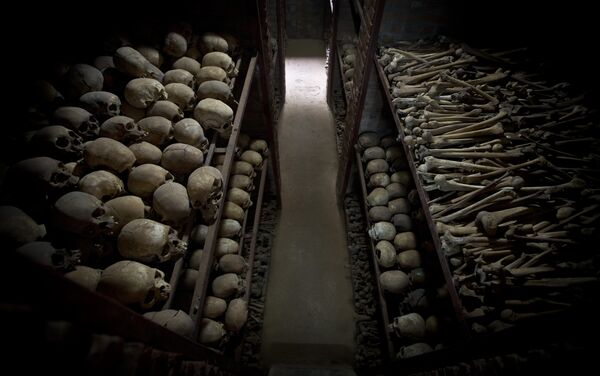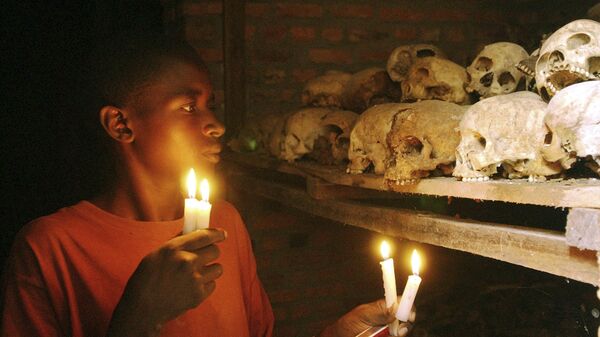Jacques Morel, author of the book "France in the center of genocide" (La France au cœur du génocide) and an expert in Rwanda has been gathering evidence about French complicity in the Rwandan genocide.
In his interview with Sputnik France, he noted that in the latest twist in the investigation, the experts appointed by investigators Trévidic and Nathalie Poux have confirmed that the missiles which took down president Habyarimana's plane had been fired either from the Kanombe military camp or from a nearby point.
Thus, they acknowledged what had already been known: the assassination had been organized by the Rwandan military, who refused to comply with Arusha's peaceful agreement, which mandated the inclusion of the Rwandan Patriotic Front (RPF) in parliament and the merger of two armies.
READ MORE: France, BNP Paribas Bank Accused of Having Hand in 1994 Rwandan Genocide
Jacques Morel, however, noted that the Rwandan military accusation meant the direct accusation of France, primarily because French officers were in command of all the operations conducted by the Rwandan army. They had access to all the information wiretapped by the country's intelligence.
Secondly, Rwandan servicemen simply could not operate the artillery systems which had been supplied by France and thus were unable to strike at the airplane on their own, he pointed out. This had also been acknowledged by former French ambassador to Rwanda Georges Martres. Hence it is only too evident that those were specially trained servicemen who were sent by France to the Kanombe military camp, the author concluded.
He further opined that France had been implicated in this case at the highest level, although the attack itself could have been launched by the hands of foreign mercenaries.
According to Morel, apart from being responsible for the attack on the presidential plane, France was also responsible for the formation of the country's government. Rwandan political extremists could have never done it on their own if not for the French ambassador, who was able to impose his government, which consisted of the members of the National Revolutionary Movement for Development (NRMD) and Hutu Power movement.

The Rwandan genocide was a mass slaughter of Tutsi ethnic minority by members by the Hutu majority government. According to the latest estimates, 1 million Rwandans were killed during the 100-day period between April 7 and mid-July 1994, constituting as many as 70 percent of the Tutsi population. The genocide was sparked by the murder of former Rwandan president Juvenal Habyarimana and ended when the Tutsi-backed Rwandan Patriotic Front, led by Paul Kagame, took control of the country.


